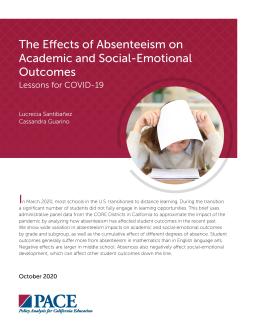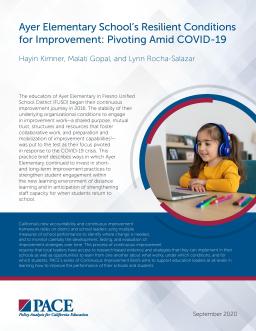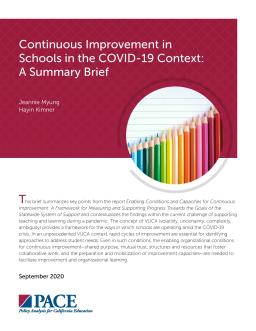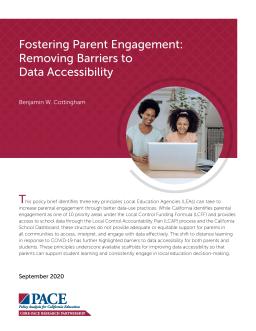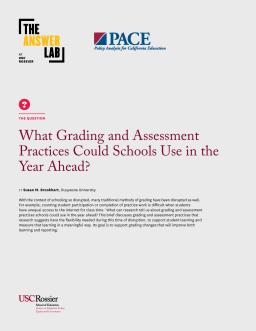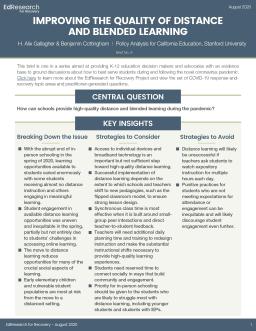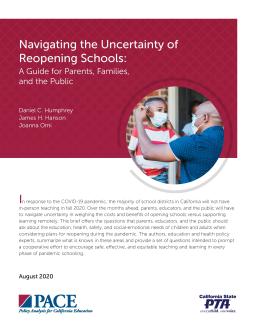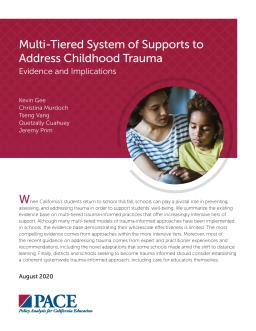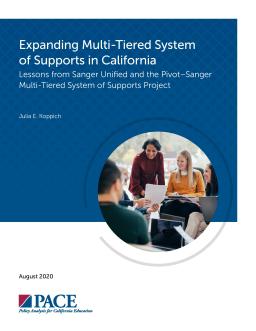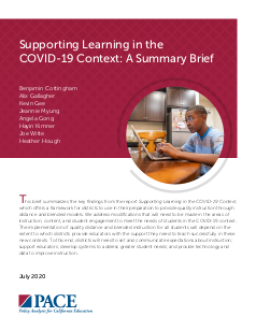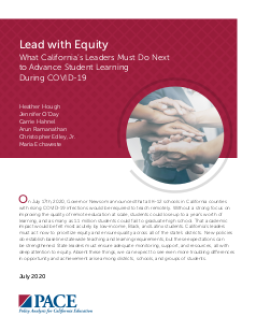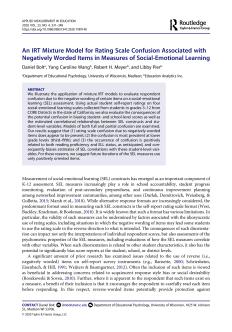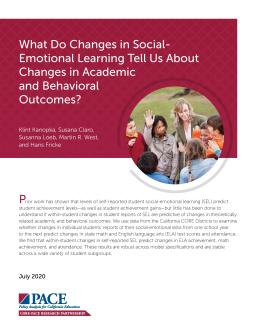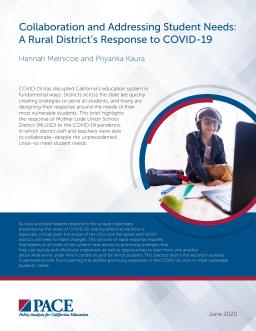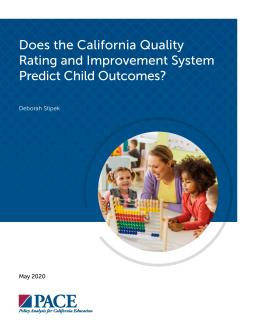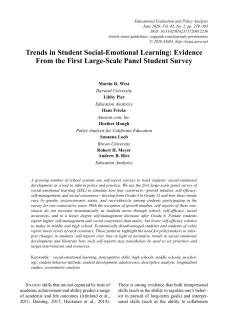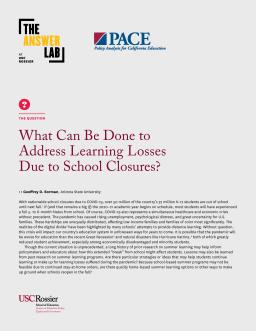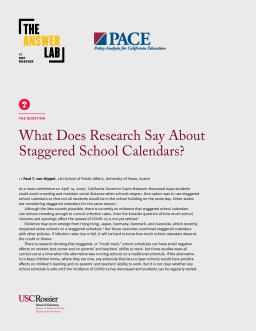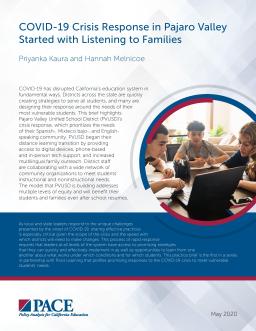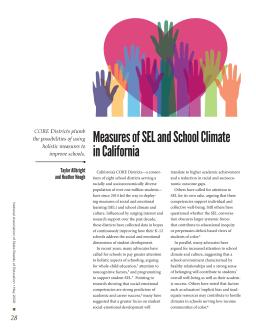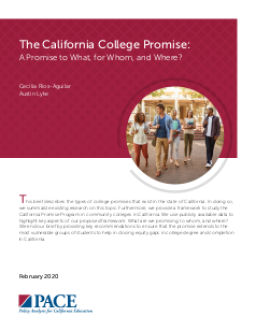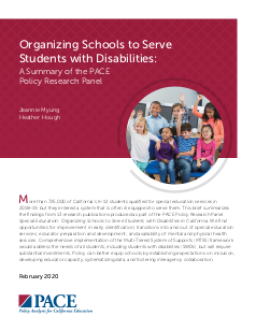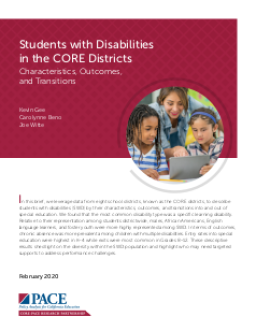Summary
Summary
Summary
Summary
Parental engagement is essential to improve academic outcomes for all students, particularly low-income, Black, and Latinx students. Distance learning has intensified the need for parental support, but state policies and tools for engagement are inadequate. Local Educational Agencies can remove barriers to data access and support parent engagement by following three key principles and taking related actions.
Summary
Summary
How can schools provide high-quality distance and blended learning during the pandemic? This brief includes a mix of rigorous evidence from extant studies, data from interviews with practitioners who described their learnings from informal experimentation during the spring of 2020, and expert researchers who thought about how to apply research to the current context.
Summary
Summary
This brief summarizes the current evidence base on multi-tiered trauma-informed practices in schools to prevent, assess, and address trauma in students. Although the effectiveness of trauma-informed approaches is limited, the most compelling evidence comes from the more intensive tiers. Recent guidance on addressing trauma comes from expert and practitioner experiences and recommendations, including adaptations made during distance learning. Schools should establish a system-wide trauma-informed approach that includes care for educators themselves.
Summary
Equity has been a key focus of California education policies, which aim to reduce disparities in learning outcomes. The Multi-Tiered System of Supports (MTSS) can help identify struggling students and offer support. Pivot Learning's demonstration project with Sanger, Monterey Peninsula, and Lancaster school districts sought to make MTSS implementation more accessible. Lessons learned from Sanger's implementation can guide the state's continued expansion of MTSS.
Summary
The brief argues that community school strategies can help address the social and learning impacts of COVID-19, by reforming underlying classroom, school, and district behaviors and systems that prevent student-centered collaboration, partnership, and teaching. The focus should be on student-centered learning, integrated teacher and student supports, collaborative leadership and practice, and the centrality of family and student relationships. The brief encourages all schools to adopt a community school approach, which can serve as a sustainable and successful investment.
Summary
This suite of publications provides 10 recommendations based on the PACE report to help educators and district leaders provide high-quality instruction through distance and blended learning models in the 2020-21 school year. Despite the challenges of COVID-19, research can guide decisions about student learning and engagement. These recommendations can be used as a framework to prioritize quality instruction.
Summary
Summary
Summary
Summary
Summary
Summary
Summary
COVID-19 school closures may intensify the typical academic "slide" observed in math and reading over the summer break. Schools can consider online summer programs, ramped-up assessment, targeted instruction, and one-to-one tutoring to mitigate learning losses.
Summary
Summary
This brief discusses how the Pajaro Valley Unified School District (PVUSD) in California is addressing the challenges of COVID-19 through family engagement and instructional access for English learners. The district has a history of serving all students through bilingual programming and a whole-child approach, and over 40% of its population are classified as English learners. PVUSD is a member of the national League of Innovative Schools and is known for its inclusive, data-driven decision-making.
Summary
Summary
We use data from the 2020 PACE/USC Rossier annual voter poll to report on California voters’ attitudes towards educational equity policy initiatives, specifically: (a) increasing the number of public school teachers of color in California and (b) requiring all high school students in California to complete an ethnic studies course. A majority of voters supported these initiatives. Respondents showed higher levels of support for increasing the number of teachers of color when informed about the positive academic impact this would likely have for students of color. Support varied depending on...
Summary
Summary
Summary
The CORE districts studied characteristics, outcomes, and transitions of students with disabilities (SWDs). Specific learning disability was the most common type. Males, African Americans, English learners, and foster youth were overrepresented. Chronic absence was higher for SWDs with multiple disabilities. Most SWDs entered special education in K-4 and exited in grades 8-12. These results help identify who may need targeted support.
